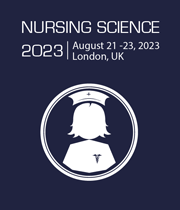Evidence-Based Nursing
Evidence-based practice is now universally acknowledged as a critical component of enhancing healthcare quality and patient outcomes. It is a problem-solving approach that incorporates best practices from the most recent medical literature, clinical experience, and the values and preferences of the people being treated. Despite the fact that the goals of nursing research (generating new knowledge) and evidence-based nursing practice (using best evidence as the foundation of nursing practice) appear to be quite different, an increasing number of research studies are being conducted with the goal of effectively translating evidence into practice. EBP gives nurses the tools they need to become change agents for better healthcare outcomes since it is an empowering approach to care. Nurses who use EBP become the link between a wealth of medical knowledge and real-world experience. They can standardize care, reduce medical errors, and make a positive difference in the lives of their patients, communities, and the world.
- Evidence Based Practice in Nursing
- Ethics
- Healthcare Outcomes

Nina Beaman
Aspen University, United States
Daryle Wane
Pasco-Hernando State College, United States
Robin Adams Geiger
Ingenovis Health, United States
Elvessa Narvasa
Quebec CCN, Canada
Sue Roe
The Roe Group Enterprises, LLC, United States
Maria Kozlowski Gibson
Cleveland State University, United States


Title : Nurse as designer: Innovative practice contributing to nursing science
Jean Ross, Otago Polytechnic, New Zealand
Title : Creating a culture of mentorship: Empowering nurses to reach their full potential
Robin Adams Geiger, Ingenovis Health, United States
Title : Emerging paradigm of patient care in the age of wearable technology
Elvessa Narvasa, Quebec CCN, Canada
Title : Late adverse effects of the treatment for childhood cancer
Jelena Roganovic, University of Rijeka, Croatia (Hrvatska)
Title : Relevance of clinical practice in nursing education
Daryle Wane, Pasco-Hernando State College, United States
Title : The neurobiology of aggression: De-escalation and whole-brain processing techniques
Nina Beaman, Aspen University, United States